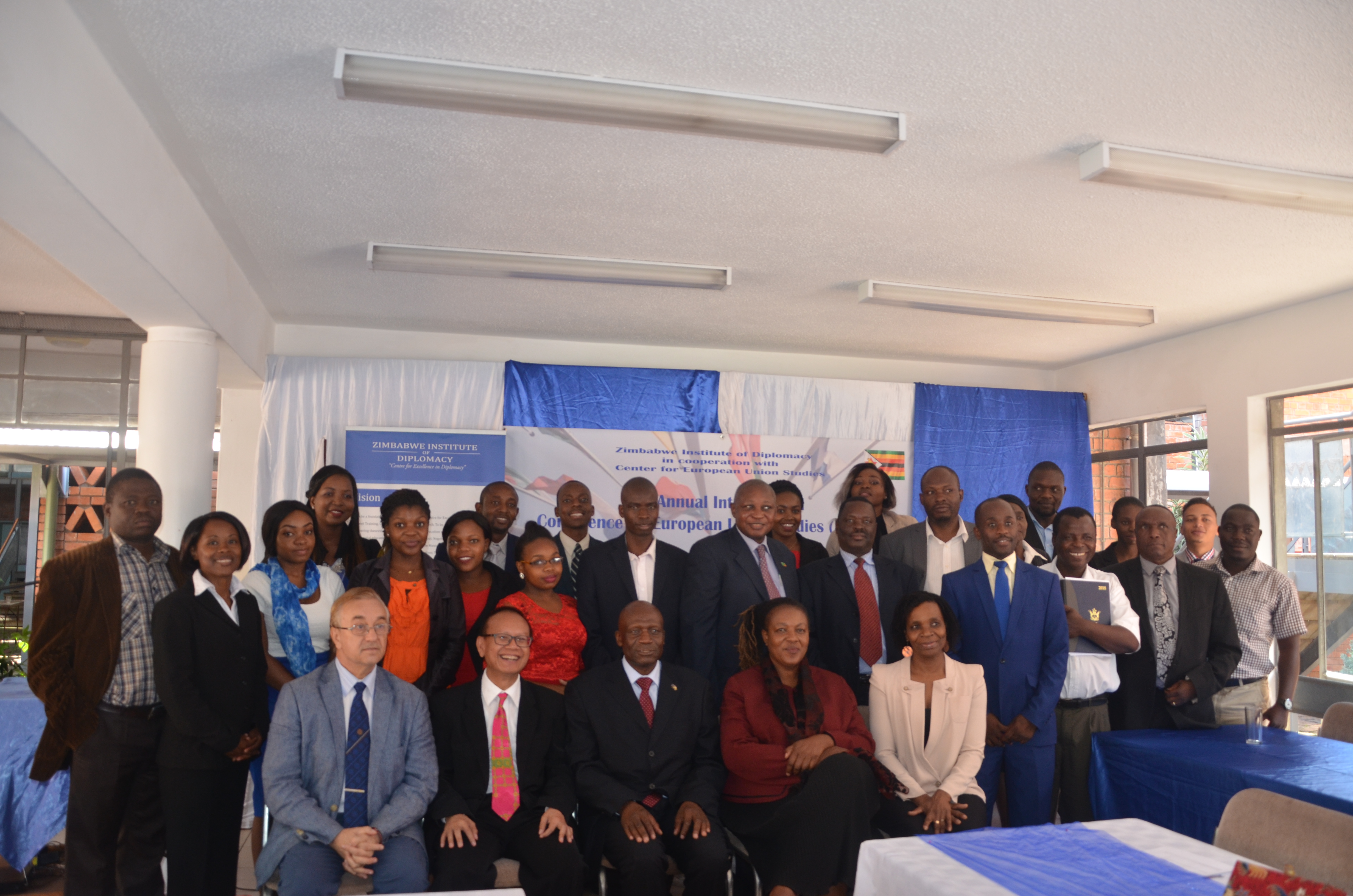
European Union is Work in Progress
In many historical moments, Europe’s futures have seemed not simply open and uncertain, but replete with contradiction. Similarly, in contemporary Europe, the responses of both ordinary Europeans and the continent’s collective institutions to the challenges posed by crisis again constitute a series of contradictions many of which reiterate large questions from Europe’s past and the forces to imagine its possible future. The Institute in cooperation with the Centre for European Studies hosted the 3rd Annual International Conference on European Studies (AICEUS) on 23 March 2018 at the ZID Campus, Harare, Zimbabwe.
In his keynote address to open the conference, Mr V.A Chikanda, the Chairperson of the Zimbabwe Institute of Diplomacy highlighted that the European Union is a unique partnership in which member states have pooled sovereignty in certain policy areas and harmonized laws on a wide range of economic and political issues. He also emphasized that although EU faces a range of political and economic pressures, including slow growth and persistently high unemployment in many EU countries, as well as the rise of populist political parties, the EU remains a supranational institution that has survived the test of time and managed to bring the much needed peace, harmony and stability in Europe and it continues to help its membership to intensify transition to democracy, good governance and economic prosperity.
The conference was characterized by presentations from different scholars and from various academic discourses, debating and critically analyzing contemporary issues around the European Union. Some of the topics which were discussed include the EU-Zimbabwe relations in the wake of the “new dispensation”, the EU-Indonesia economic relations, the EU after Brexit among other issues. What remained undebatable after the highly interactive conference was that although Europe is oceans away (from Zimbabwe & Africa) it offers a lot to the study of European Union Studies and also that other regional organizations like the African Union have a lot to learn from the EU to address the architecture of governance in Africa and the importance of integrative diplomacy for sustainable development and growth for its citizenry.
The conference was attended by students of Contemporary Diplomacy and International Relations, Heads of Diplomatic Missions, Members of International Organizations and Civic Society Organizations as well as private individuals.
